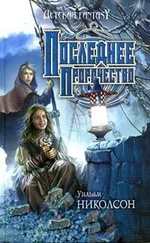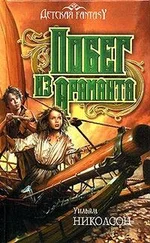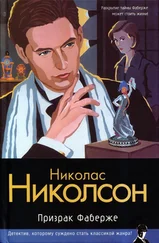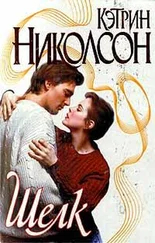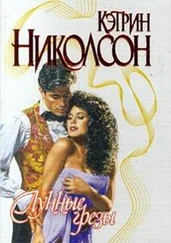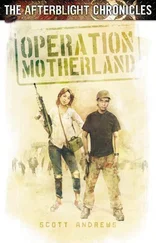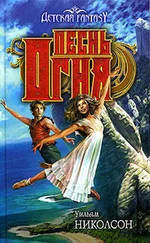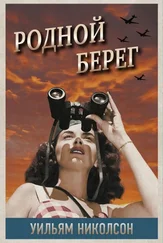‘Rosie, you’re the birthday girl today. You can sit on the birthday chair. And Ethel, you’re Rosie’s best friend. Droopy, you can be by Rosie’s feet. Oh, Rosie, I forgot your flower hat. You have to wear the flower hat on your birthday.’
Kitty watches her child’s grave re-creation of her past with a smile. But along with the fond memories comes another more shadowed picture. She sees her daughter growing up and having a daughter of her own, and that little child playing the same game. And is this all? whispers a voice in her head. Are we never to leave the nursery?
Her father brings out the sherry before dinner, in Kitty’s honour, and her mother drinks her entire glassful. It’s clear from Michael Teale’s frown that this is not what he wants, though having poured his wife the sherry it seems odd that she should not be supposed to drink it. However, he says nothing.
His smiles are all for his daughter.
‘So have you had any trouble with these terrible floods?’ he says.
‘The river burst its banks,’ says Kitty, ‘but our house has never been in danger. I’m just so happy not to be freezing any more.’
‘What a winter it’s been! Here’s Easter at last, the feast of the Resurrection, and I’m telling everyone the worst is over.’
‘But Michael,’ says Mrs Teale, ‘winter will come round again.’
‘Yes, yes,’ he says, his eyes still on Kitty. ‘So how’s that famous husband of yours getting along?’
‘He’s in France,’ says Kitty. ‘He works so hard.’
‘Jesus rises from the dead on Easter Day,’ says Mrs Teale, her cheeks now a little flushed. ‘And the year goes round, and then he’s crucified all over again.’
‘Be quiet!’ says Mr Teale. ‘You’re a fool.’
Silence falls over the table. This is the first time Kitty has known her father reprimand her mother in the presence of others. It frightens her. She looks down at her plate. But her father resumes the conversation as if nothing has happened.
‘I respect a man who works hard,’ he says.
‘It does mean he’s away from home a great deal,’ says Kitty, avoiding looking at her mother.
‘We all have to make sacrifices,’ says her father. ‘When I was a young man I had a great dream. I was going to go round the world, working my passage on cargo ships. Then the war came along, of course, and that was that.’
Kitty has never heard of this dream before.
‘Maybe you could go now,’ she says.
‘Impossible.’ He beams at her, as if this impossibility somehow suits him. ‘Here I am, nearly sixty years old. And there’s your mother. No, I shall stick by the old abbey now, and be buried beside it. The abbey and I will crumble away together.’
She sees then, for the merest instant, a flicker of horror in his eyes, not at the coming of death but at the losing of life; at the life he might have lived, and knows he never will.
Lying awake that night in the bed she slept in as a child, Kitty tells herself her life will be different, that it is already different. She will not grow old in a loveless angry marriage. And yet her mother could never have anticipated such a fate. How is it to be avoided? The years go by, and the shadows lengthen. For a while you live for your children, and then the children leave home, and what do you do then? Turn slowly sour, like undrunk milk.
* * *
On Easter Day, at the big mid-morning service, Kitty sings Panis Angelicus . The abbey is full. Her father stands robed and beaming at the altar behind her. Her mother sits with Pamela in the front pew before her. Old Mr Saxon plays the gently falling chords of the introduction on the big organ. And the melody rises up from within her like the sweet breath of life itself.
Panis Angelicus, fit panis hominum
Dat panis coelicus figuris terminum …
She has sung it many times in her younger years, and the words flow effortlessly. She has no nervousness before the congregation: she hardly sees them. She is surrendering herself to the music, her body an instrument beyond her own control. She hears the throbbing hum of the organ notes as if the same keys and pedals press the clear high song from her throat, and she need do nothing. As she sings she can hear herself make mistakes, but somehow even her wrong notes sound right. So, self-forgetting, she reaches out for the high note, and gets it and loses it, and comes stepping down the melody, singing with a purity and a wholeheartedness she has rediscovered from her youth.
Pamela watches and hears with her lips parted, enraptured. It’s not only the voice that astonishes her this Easter morning, a voice she never knew her mother had. It’s the shining eyes of all the others round her, eyes fixed in admiration on her mother. From this moment the child knows that this is what she wants for herself: to be the object of such looks of love.
There’s no applause as Kitty finishes. This is a religious service. But a kind of collective sigh goes up from the pews. Afterwards there are many old friends and neighbours pressing forward with their congratulations, and Kitty smiles and thanks them for their kind words, and Pamela clings tight to one arm wherever she goes so that everyone knows it’s her mother who is the star of Easter Day. But inside herself Kitty has gone far away, and wishes she could be alone, because something big has happened. She’s found a place where she can give all of herself. She has entered the wave.
Then comes the reaction, a sudden exhaustion so powerful she can no longer stand, accompanied by a bad taste in her mouth. Her mother sees her stumble, and coming to her side, takes her away from the crowd.
‘You’re worn out, darling. Go and lie down. Pammy, you stay here with me. Just go, darling. I’ll explain.’
Kitty throws her a grateful look and runs upstairs to her room. There she lies full length on the bed and hears the buzz of voices below and attempts to find again the extraordinary joy she felt while singing. She can do no more than catch a faint echo; and even that is slipping fast away from her.
For a while she rests, half-sleeping. Then, wanting not to lose the precious moment for ever, she gets up and goes to her old desk. She will write it down, in a letter. There’s only one person to whom she can send such confused thoughts. She writes to Larry.
I do so envy you your great adventure. Here life goes on the same old way, and sometimes I find myself wondering how it will be in a few years’ time, when Pamela no longer needs me. I expect I shall turn into one of those good women who do good works, and then you, who believe in goodness, can come and praise me. I shall be duly grateful, I assure you, but I can’t promise that it will be enough. I may grow restless and badtempered, and what is far worse, disappointed. I don’t think you’ll praise me for that.
Today has turned out to be a special day. It’s Easter Day, but that’s not what’s special. As my mother says, it comes round every year. What happened is this. When I was younger I used to sing in the choir, I sang the soprano solos, and the very same choirmaster is still here. He begged me to sing in the abbey and I did, and Larry, for three or four minutes I was what Ed called me once, I was an angel in heaven. Actually I’ve no idea what it’s like to be an angel or what heaven is like but I was let go – I don’t know how else to write it – I escaped and got away and I was so happy. Is this what happens to you when you paint? You say you’re not thinking of art any more, but how can that be? If it’s the same for you with art as it is for me when I sing, at least as I sang today, then you can’t give it up. It would be to give up the only time when you’re fully alive. Do you feel that? How most of the time we’re only half alive, or even half asleep? I’ve been so tired lately, I don’t know why, it’s not as if I have to do such hard work. I think people need something more than just food and shelter, they need a mission in life, and without a mission they go slower and slower until they can hardly move at all. I think Ed feels this most strongly of all of us, and that’s why he drives himself so hard. I don’t feel as if I want to drive myself, it’s more that I want to jump, or fall, or fly away. I wish you had been here to hear me sing. You would have been so proud. I do miss you a lot. When things happen to me it’s you I want to tell. Come home soon, please.
Читать дальше

